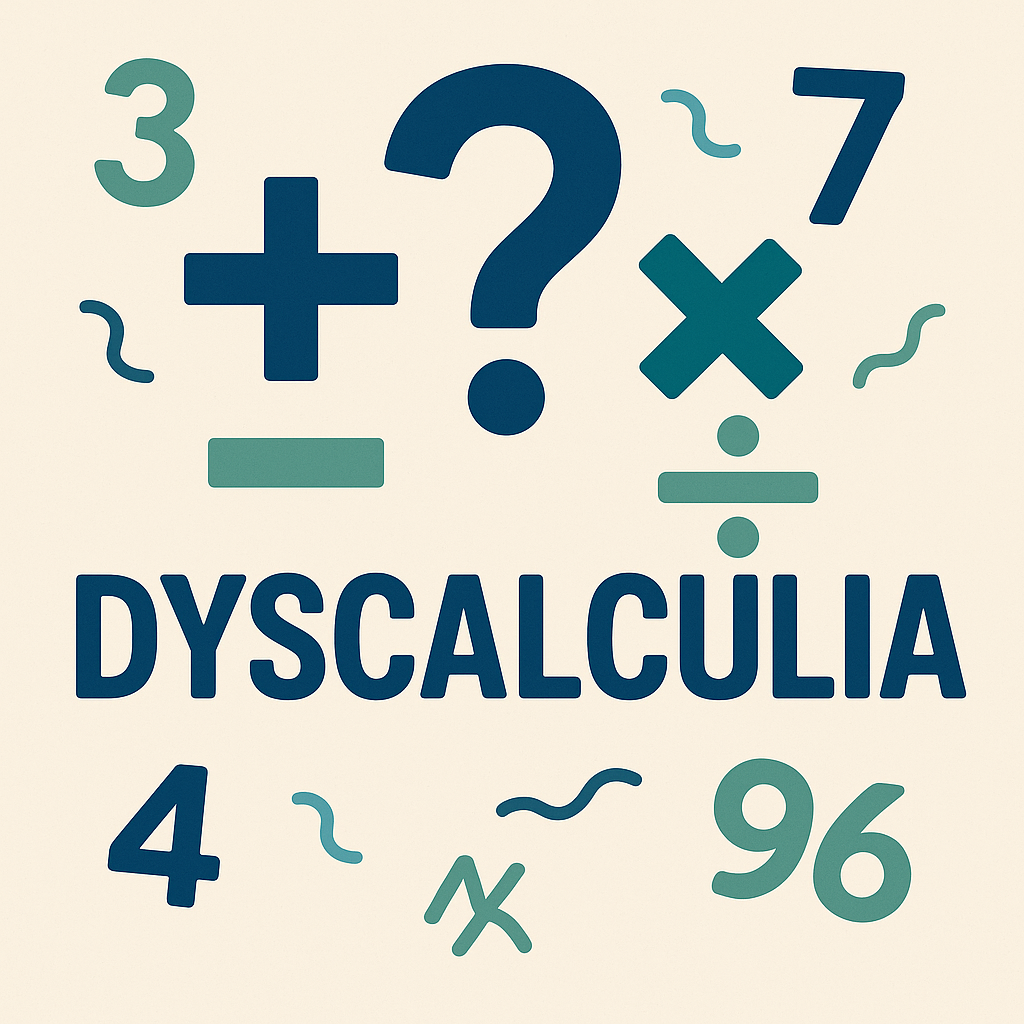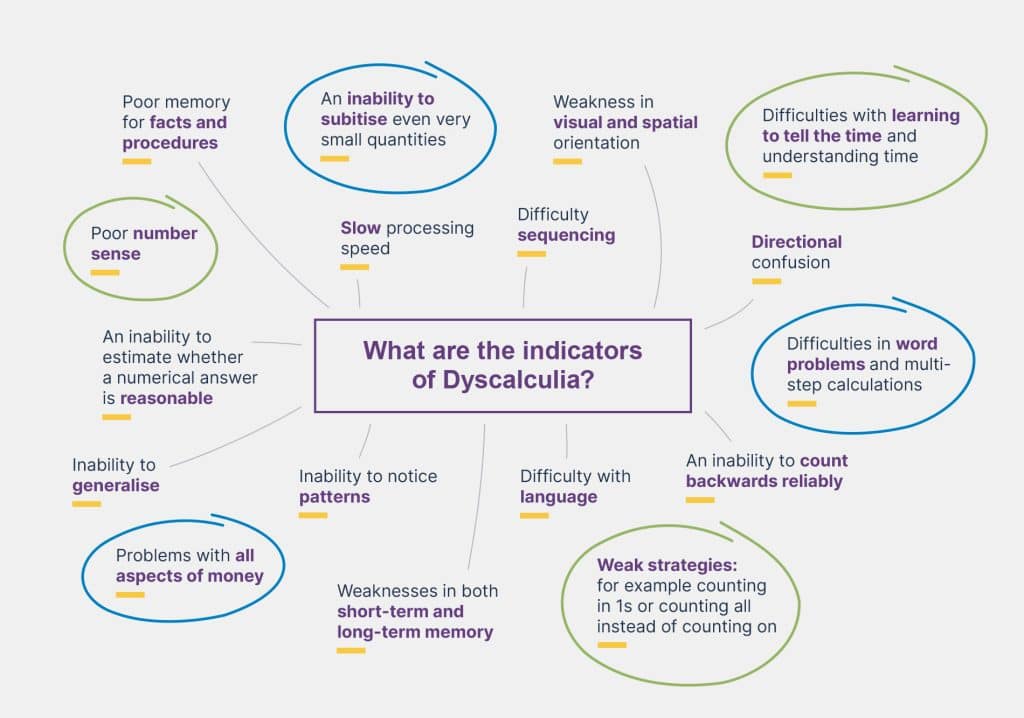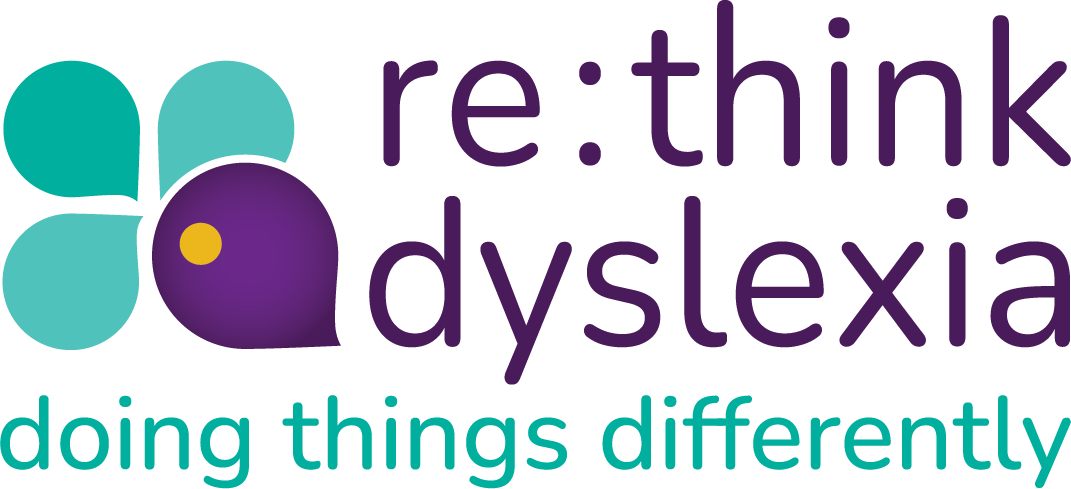Adulthood Dyscalculia


Adulthood Dyscalculia
Dyscalculia is a specific learning disability is defined as specific and persistent difficulty in understanding numbers, which can lead to a range of difficulties with mathematics. This includes problems learning number facts and procedures, and difficulties understanding simple number concepts. It is a specific learning disorder and affects 3-7% of the general population.
Surprisingly, dyscalculia and dyslexia often coexist, with 30-70% of individuals experiencing both conditions simultaneously. Although dyslexia and dyscalculia are distinct disorders, they share commonalities such as weaknesses in working memory, impaired processing speed, and difficulties in verbal comprehension
Dyscalculia is not very well known, including among parents and teachers who might be the first to notice an issue. Often, it is assumed that if a person has dyslexia then that is what is causing their math difficulties.
Dyscalculia
How dyscalculia can look to others
The precise effects of dyscalculia are different for every person with the diagnosis. However, there are frequently appearing difficulties for people who have dyscalculia. Some of those are:
- difficulty counting backwards
- difficulty remembering number ‘facts’, even with hours of practise
- forgets mathematical procedures, such as how to calculate a multiple-step maths problem
- weak mental arithmetic skills
- very little sense of whether guessed answers are right or nearly right.
A person with dyscalculia will have trouble withmaths that is distinctly below what is expected for their age and education level, and not because of poor education or intellectual impairment. Dyscalculia can have a profound impact on academic performance, work-related tasks, and everyday life, and it is frequently associated with co-occurrs with dyslexia and other neurodevelopment conditons as well as mental disorders (Haberstroh & Schulte-Korne, 2019; Wilson et al., 2015).

Image by the Dyscalailia Network, 2025
Life with dyscalculia
As you can imagine, having these sorts of difficulties can make school, uni and work really hard. That can then lead to disruptive behaviour, dropping out, and stress and isolation.
It is essential to have dyscalculia diagnosed by health professionals with expertise in learning disabilities. That way, strategies can be put in place to ensure a young person with dyscalculia can achieve their full potential.
How We Can Help
Our team offers a range of supports designed with and for autistic adults:
-
One-on-one coaching to support executive function, communication, and workplace success
-
Mental health support from clinicians who understand the autistic experience
-
Workplace training for managers and teams on inclusive practices and reasonable adjustments
-
JobAccess-funded services that help autistic employees access free supports
-
Peer networks and community to reduce isolation and increase connection
At re:think dyslexia, we are dedicated to raising awareness about dyscalculia and providing support for those facing its challenges. Whether you or someone you know is grappling with arithmetic difficulties or related learning differences, our resources and expertise can make a meaningful difference. Explore our services and learn how we can empower individuals with dyscalculia to thrive academically and in everyday life.
Learning more:
Dear Dyslexic Podcast Series Episode 37 with Brain Butterworth, Emeritus Professor of Cognitive Neuropsychology at University College London Dyslcalculia expert.
Find out more about Dyscalculia at dyscalculia.org

